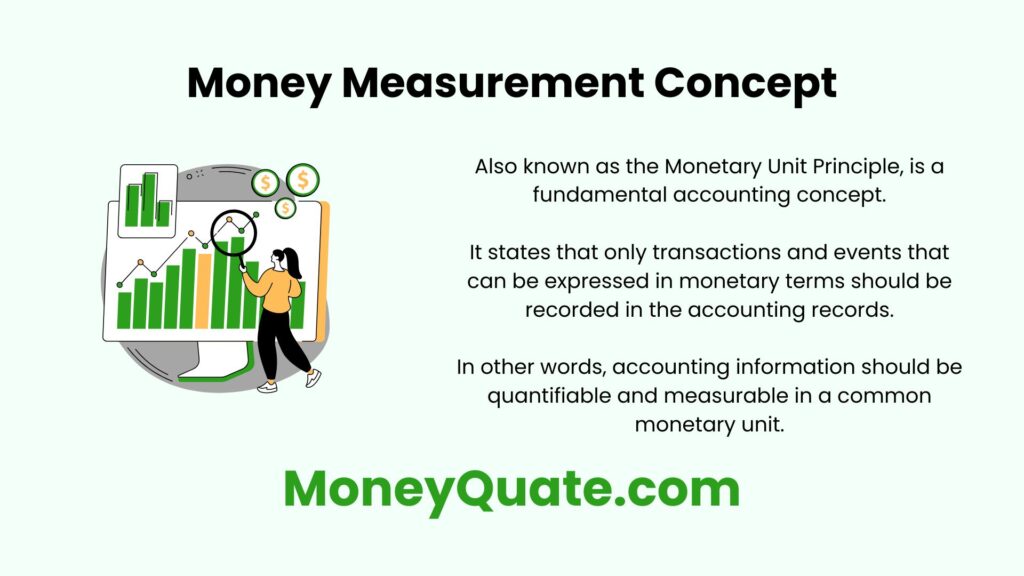The money measurement concept is a fundamental principle in accounting that states only transactions and events that can be expressed in monetary terms should be recorded in the financial statements.
This concept is crucial because it ensures that financial information is clear, objective, and comparable across different periods and entities.

Contents
- 1 Explanation
- 2 Examples
- 3 FAQs
- 3.1 Why does the money measurement concept only focus on monetary transactions?
- 3.2 What happens if a transaction doesn’t involve money?
- 3.3 Can non-monetary assets ever be recorded in the financial statements?
- 3.4 How does the money measurement concept affect decision-making?
- 3.5 Does the money measurement concept apply to all businesses?
Explanation
Imagine you have a lemonade stand.
Every day, you sell lemonade to customers and earn money.
These transactions involve money, which is easy to measure because you know exactly how much you earned from each sale. So, you record these sales in your accounting books.
Now, let’s say you decide to decorate your lemonade stand with beautiful flowers to attract more customers.
While the flowers might make your stand look nicer and potentially increase sales, their value cannot be accurately measured in monetary terms.
Therefore, the cost of the flowers wouldn’t be recorded in your accounting books because it doesn’t fit the money measurement concept.
Examples
Recording Sales:
When you sell lemonade for $1 per cup, you record the amount you earned from each sale in your accounting records because it’s a transaction involving money.
Purchasing Equipment:
If you buy a new blender for $50 to make your lemonade, you would record this expense because it involves spending money, which is easily measured.
Employee Morale:
While having happy and motivated employees is important for your business’s success, you can’t measure their morale in monetary terms.
Therefore, employee morale wouldn’t be recorded in your financial statements.
FAQs
Why does the money measurement concept only focus on monetary transactions?
The concept ensures that financial information is objective and comparable by only including transactions that can be precisely measured in monetary terms.
What happens if a transaction doesn’t involve money?
Transactions that don’t involve money, such as changes in employee morale or customer satisfaction, are not recorded in the financial statements because their value cannot be accurately measured.
Can non-monetary assets ever be recorded in the financial statements?
Yes, non-monetary assets like buildings or equipment can be recorded if they were acquired for a measurable cost.
For example, if you buy a delivery truck for $10,000, its cost would be recorded in your accounting records.
How does the money measurement concept affect decision-making?
By focusing on measurable monetary transactions, the concept provides clear and reliable information for making financial decisions.
It helps businesses prioritize activities that directly impact their financial performance.
Does the money measurement concept apply to all businesses?
Yes, the concept applies to all businesses, regardless of their size or industry. It ensures consistency and comparability in financial reporting practices.